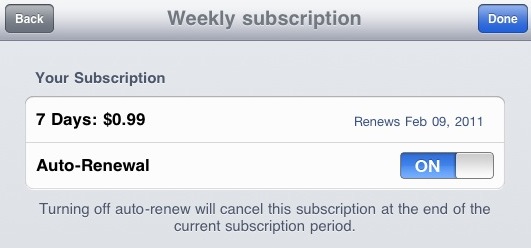Apple’s recently announced subscriptions for content-based iOS apps have caused a stir in the publishing and development community due to the 30% cut the Cupertino company takes off every recurring payment and the impossibility for publishers to insert in their iPhone and iPad applications links to alternative web stores.
The Wall Street Journal reports U.S. and European antitrust enforcers “have begun looking at” Apple’s new subscription policy, and whether it may violate laws that regulate the sell of digital subscriptions in online marketplaces. This renewed interest in Apple’s iTunes payment platform may not evolve into a formal investigation or “action against the company”, the WSJ reports, but it appears that Apple has attracted regulators across the United States and Europe.
A spokeswoman for the European Commission, the European Union’s executive arm, said Thursday that the commission was aware of the new subscription service and was “carefully monitoring the situation.
Apple and representatives of the FTC and Justice Department declined to comment. The new subscription system, officially announced by Apple earlier this week, allows content publishers to set up recurring weekly, monthly or yearly subscriptions in their iOS apps. Users can subscribe with just one tap through their iPhones and iPads and manage subscriptions from their mobile devices and iTunes account, which relies on the same credit card information used to purchase songs, movies, books and apps sold by Apple in its iTunes Store. Several companies have expressed their concerns this week regarding Apple’s 30% commission on every transaction.
Antitrust officials in the U.S. and abroad may be hard-pressed to conclude that Apple’s 30% commission is excessive, antitrust experts said, partly because it will be difficult to determine a benchmark commission rate for digital subscriptions. “The European Commission has been reluctant in the past to second-guess pricing as it is a complex exercise, and the commission does not want to become a price regulator,” said Damien Geradin, a professor of competition law at Tilburg University in the Netherlands.
Last year, the FTC was reportedly looking into Apple’s App Store guidelines that forced developers to create applications for iPhones and iPads using only the provided programming tools, but no formal action was taken afterwards.


